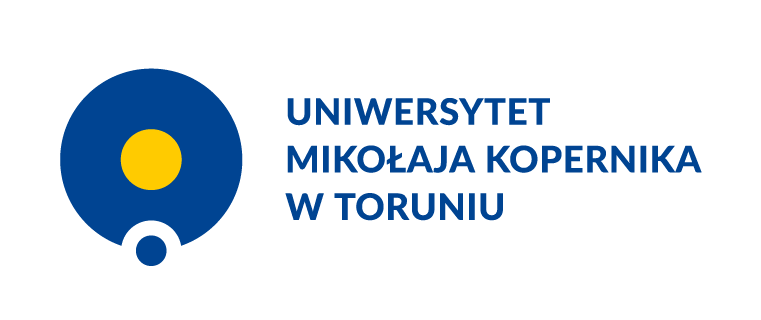
Polish-Swiss Research Programme
Project No. PSPB-086/2010
Value of co-financing: 821,009.19 CHF

Duration of the project: 2011-2015
Project: Climate of northern Poland during the last 1000 years: Constraining the future with the past (CLIMPOL) is supported by a grant from Switzerland through the Swiss Contribution to the enlarged European Union.
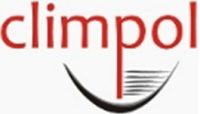
Sound information on future climate change is the key scientific basis for climate risk assessment, development of mitigation/adaptation strategies and, ultimately, for planning and decision making at local to global scales. It became evident only recently that uncertainties of future climate projections can be substantially reduced if the climate models are constrained by high-quality paleoclimate data. Long and annually-resolved proxy time series are the only robust means to assess the direction, magnitude and rates of change for forced and unforced climate variability. Studying the last 1000 years is critical. These years mark the boundary conditions for our modern climate system, social organisation, biodiversity and economic structure. Reconstructing spatial variations in the climate over the last millennium holds the key for understanding the natural variability of European climate.
Benficiaries:
- Politechnika Śląska (Dr Natalia Piotrowska)
- Uniwersytet Mikołaja Kopernika w Toruniu (Prof. dr hab. Rajmund Przybylak)
- Zakład Botaniki im. Władysława Szafera Polskiej Akademii Nauk (Dr Agnieszka Wacnik)
- Uniwersytet im. Adama Mickiewicza w Poznaniu (Prof. dr hab. Tomasz Goslar)
- University of Bern (Prof. Martin Grosjean)
- Oeschger Centre for Climate Change Research
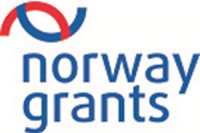
Arctic climate system study of ocean, sea ice and glaciers interactions in Svalbard area (AWAKE-2)
Participants: prof. dr hab. Rajmund Przybylak, dr Andrzej Araźny, dr Przemysław WyszyńskiBeing a link land and ocean, Arctic fjords are highly vulnerable to warming and are expected to exhibit the earliest environmental changes resulting from anthropogenic impacts on climate. In the Arctic, the inshore boundary of a fjord system is usually dominated by glaciers and seasonal freshwater input while its offshore boundary is strongly influenced by warm oceanic waters. Improved understanding of the fjords-ocean exchange and processes within Arctic fjords is of a highest importance because their response to atmospheric, oceanic and glacial variability provides a key to understand the past and to forecast the future of the high latitude glaciers and Arctic climate.
AWAKE-2 is a continuation and extension of the Polish-Norwegian AWAKE project. The aim of the AWAKE-2 is to understand the interactions between the main components of the climate system in the Svalbard area: ocean, atmosphere and ice to identify mechanisms of interannual climate variability and long-term trends. The main hypothesis is that the Atlantic Water inflows over the Svalbard shelf and into the fjords have become more frequent during the last decades due to changes in the ocean and atmosphere. The integrated effect of these events results in new regimes and changes in atmosphere, ocean, sea ice and glaciers in Svalbard. Furthermore, changes in the cryosphere and geosphere create feedback effects in ocean and atmosphere. The dedicated, multidisciplinary approach to achieve the project’s aims will be adopted by carrying out the coordinated meteorological, oceanographic, glaciological and geophysical observations in Hornsund and on the adjacent shelf and open sea. The synthesis will build on the first AWAKE and combine the new interdisciplinary AWAKE-2 results with other existing data into the new and improved knowledge of the critical interconnections between atmosphere, hydrosphere and cryosphere.
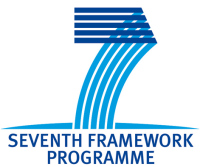
“Postgraduate Research on Photonics as an Enabling Technology” (PROPHET)
“Postgraduate Research on Photonics as an Enabling Technology” (PROPHET), aims to address these issues by training a cohort of 14 early stage researchers (ESRs) and 5 young experienced researchers (ERs) in the full gamut of skills required to undertake a career in photonics. The consortium, consisting of 9 academic partners, 4 full industry partners and 2 associate partners (one of whom is industry), are ideally positioned to impart these skills, with world-class expertise ranging from growth and fabrication, through structural and device characterisation and theory, up to instrument assembly and industrial applications. The strong industry involvement in the consortium ensures an application-specific, end-user target for the researchers’ training, and gives each network fellow experience of the industry workplace. The core skills of photonics can be applied across a wide range of applications, and this will be demonstrated by leveraging the same fundamental skills for specific applications in each of the four diverse areas of communications, energy, environment and life science.
Coordinator at NCU: prof. Maciej Wojtkowski
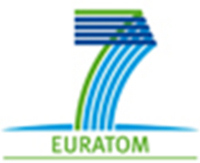
Platenso
PLATENSO, a project funded by the Seventh EURATOM Research and Training Programme (FP7) on Nuclear Energy of the European Commission, aims 1) to provide a proposal for a European Platform for Socio-Economic matters linked to nuclear technology and 2) to develop recommendations for Research Strategies in EU New Member States (NMS). The consortium consists of nineteen organizations from twelve different countries. The PLATENSO project will help opening up broader research approaches that can build new networks, escape from narrow framing, enrich communication and avoid the compartmentalization of research interests. PLATENSO also aims to improve the prerequisites for future participation in Euratom projects in the countries involved, not only for the project participants but also for research establishments overall. The focus is on social, societal and governance issues. Coordinator at NCU: dr Piotr Stankiewicz

Towards a Polish Cybercrime Centre of Excellence
Research project “Towards a Polish Cybercrime Centre of Excellence” is co-funded by the Prevention of and Fight against Crime programme of the European Union within the scope of the ISEC Programme. ISEC Programme aims to prevent organized crime and other of its forms, protect and support witnesses and victims of crime. The fight against terrorism, human trafficking, illicit drug and arms trafficking, corruption, child abuse and cybercrime are the main priorities of the ISEC Programme. As part of the research project, in accordance with the decree of the Rector of the NCU of 12 August 2013, the Cybercrime Research Centre, which conducts complex research and education on the broader issue of cybercrime, was established at the Faculty of Law and Administration of the NCU in Torun. The Center is currently engaged in research concerned with the cooperation of Internet service providers with law enforcement in combating crimes against children committed on the Internet. Moreover the CRC cooperates with other institutions, public and private sector in training and educational activities related to the prevention and prosecution of crimes committed using the Internet. Coordinator at NCU: prof. Arkadiusz Lach.
